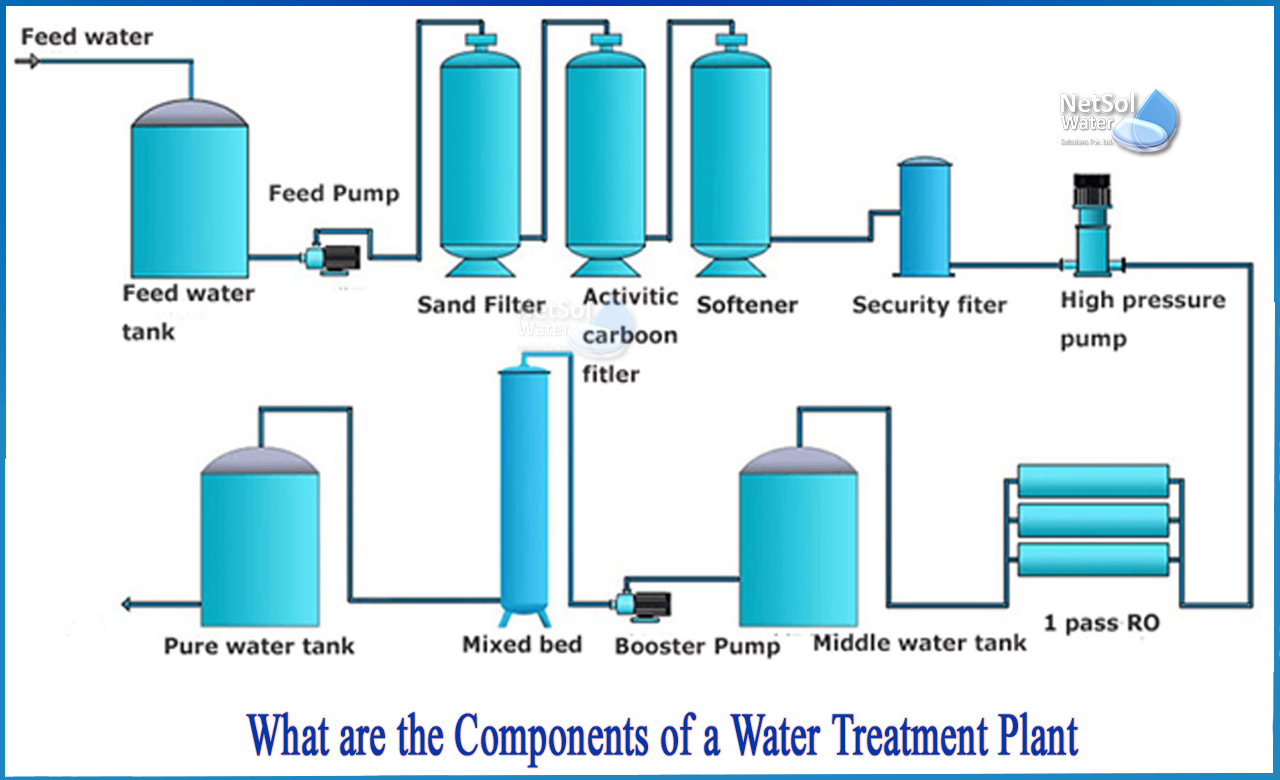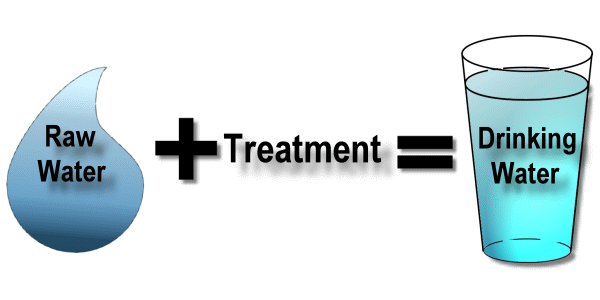How to Choose the Right Water Technology Startups for Your Portfolio
Exploring Water Technology Startups: Exactly How They Reinvent Lasting Solutions
Water Technology startups are emerging as vital gamers in the mission for sustainable options to worldwide water problems. These business take advantage of ingenious technologies to boost water efficiency and administration. Their contributions deal with pushing difficulties such as deficiency and contamination. Nonetheless, in spite of their potential, they encounter different obstacles that might impact their success. Recognizing these dynamics clarifies the future of water sustainability and the role these start-ups may play in forming it.
The Significance of Water Technology in Today's Globe
As global water deficiency intensifies, the relevance of water Technology comes to be significantly evident. Water Technology plays an essential role in resolving the difficulties postured by increasing and reducing fresh water resources demand. It incorporates a broad series of innovations, consisting of innovative filtration systems, wastewater treatment innovations, and smart irrigation options. These advancements not only improve the performance of water usage but likewise promote sustainable practices across numerous industries, including farming, industry, and city development.
The value of water Technology extends beyond source management. It promotes resilience against climate modification influences, such as droughts and floods, by providing adaptive options for water preservation and management. Furthermore, it sustains public wellness by making certain accessibility to clean and risk-free alcohol consumption water. As the globe deals with expanding water-related challenges, the integration of advanced water modern technologies is necessary for cultivating lasting advancement and safeguarding water schedule for future generations.
Ingenious Solutions From Water Tech Startups
While standard strategies to water management have actually served their function, a new age of water technology startups is transforming the market with cutting-edge remedies (Water Technology Startups). These firms utilize sophisticated modern technologies to resolve pushing water problems, such as shortage, contamination, and inefficient distribution. Numerous startups make use of expert system and maker understanding to enhance water usage and forecast demand, resulting in even more sustainable methods
In addition, several firms concentrate on establishing innovative filtering systems that remove toxins and make water safe for intake. Others explore decentralized water treatment innovations, allowing neighborhoods to manage their water sources better. Some start-ups are introducing clever irrigation remedies that reduce water waste in farming, promoting ecological preservation.
Case Researches: Effective Water Technology Startups
Various water Technology start-ups have actually become leaders in attending to international water challenges with cutting-edge techniques. One remarkable instance is Xylem, which focuses on water analytics and wise infrastructure to enhance water usage and lower waste. Their services have been applied in various districts, showing considerable improvements in water management effectiveness.
An additional successful start-up, No Mass Water, has created solar-powered hydropanels that extract water vapor from the air, providing lasting alcohol consumption water in deserts. Water Technology Startups. This Technology has actually been released in numerous nations, ensuring communities have access to clean water
Finally, AquaVenture Holdings runs a varied portfolio of water-as-a-service options, attending to water scarcity through desalination and wastewater treatment. Their jobs have shown vital in regions facing extreme water lacks, showcasing the capacity of innovative water modern technologies to develop long-term, positive impacts. These study highlight the transformative potential of start-ups in the water Technology market.
The Function of Smart Technology in Water Administration
Smart Technology plays a vital role in modern-day water management by leveraging IoT applications to maximize resource use. Information analytics boosts efficiency by giving actionable understandings, while remote tracking solutions allow real-time oversight of water systems. With each other, these developments change exactly how water is taken care of, promoting sustainability and functional effectiveness.
IoT Applications in Water
As water deficiency and management difficulties increase worldwide, the assimilation of Internet of Points (IoT) applications has actually become a crucial solution in enhancing water resources. IoT Technology assists in real-time monitoring and analysis of water supply, enabling a lot more efficient usage and management. Sensors released in various water frameworks can track top quality, circulation rates, and leak, providing valuable data to stakeholders. This data empowers consumers and energies to make enlightened decisions, minimizing waste and improving preservation initiatives. Additionally, clever irrigation systems utilize IoT to optimize water shipment for agriculture, making sure that crops obtain the right amount of water at the best time. On the whole, IoT applications are changing traditional water administration techniques, promoting sustainability and resilience in water resource systems.
Data Analytics for Performance
Utilizing data analytics is essential for boosting performance in water monitoring. Water Technology startups are progressively utilizing advanced analytics to optimize source allotment and minimize waste. By assessing information from various resources, these startups can recognize patterns and trends that inform much better decision-making. For circumstances, predictive analytics can forecast water demand, enabling energies to change supply appropriately, consequently reducing scarcities and excess. Furthermore, real-time information processing enables the prompt detection of leaks and inadequacies within distribution systems, substantially reducing operational prices. In addition, data-driven insights encourage stakeholders to implement targeted preservation strategies, promoting sustainable methods. Fundamentally, incorporating data analytics into water administration not only simplifies procedures yet additionally promotes long-lasting sustainability in water source usage.
Remote Monitoring Solutions
While typical water management systems commonly have problem with inefficiencies, remote monitoring remedies are changing just how water resources are handled. These innovative innovations make it possible for real-time information collection and analysis, permitting stakeholders to monitor water high quality, circulation prices, and usage patterns from afar. Using sensors and IoT devices, remote tracking supplies immediate understandings that facilitate aggressive decision-making. This change not just boosts functional effectiveness but additionally promotes sustainability by lowering water waste and optimizing source allocation. Furthermore, remote tracking systems can determine possible issues before they escalate, therefore decreasing the threat more info of contamination or facilities failing. As water Technology start-ups remain to develop these services, the sector is positioned for significant advancements in sustainable water monitoring methods.
Difficulties Dealing With Water Technology Startups
Water Technology startups come across substantial obstacles that can impede their development and success. Key problems consist of safeguarding ample funding, navigating through intricate regulative settings, and competing in a congested industry. These challenges call for critical preparation and innovation to get rid of.
Funding and Investment Hurdles
Although advancement in water Technology holds immense potential for dealing with worldwide difficulties, startups in this field often encounter considerable financing and financial investment difficulties. Many financiers continue to be mindful, viewing the water market as high-risk due to its complicated regulatory landscape and long development timelines. Additionally, startups frequently battle to demonstrate immediate success, which can prevent prospective backers. Typical equity capital may overlook water innovation, preferring fields with quicker returns, such as technology or consumer products. Protecting gives and government funding can be competitive and taxing, more complicating financial security. As an outcome, lots of cutting-edge water Technology startups locate themselves in a ragged edge, calling for creative funding strategies to navigate these monetary barriers and attain their objectives
Governing Compliance Issues
Guiding regulative compliance is a significant obstacle for start-ups in the water Technology sector, as they have to come to grips with a myriad of regional, nationwide, and international guidelines. These policies frequently incorporate water top quality criteria, environmental management laws, and safety procedures, which can vary commonly across jurisdictions. Start-ups may discover it tough to browse this complex landscape, especially when scaling operations or going into new markets. The expenses linked with compliance can be substantial, drawing away sources far from advancement and item growth. Additionally, delays in obtaining necessary permits or certifications can impede growth and market access. A durable understanding of regulatory structures is necessary for these startups to guarantee lasting operations and avoid prospective legal consequences.
Market Competition Dynamics
As water Technology startups emerge in a competitive landscape, they face countless difficulties that can hamper their development and technology. Developed companies often dominate the market, leveraging resources and experience to preserve their positions. Startups struggle with restricted funding, which limits research study and development capabilities, making it tough to contend on Technology and prices. Additionally, the rapidly developing nature of water technologies demands consistent adaptation, more stressing start-up sources. Governing difficulties can make complex market entry, as conformity with environmental requirements is important yet costly. Bring in proficient talent in a specific niche field provides another obstacle, as larger companies may offer even more appealing work bundles. These factors create a complicated atmosphere for water Technology start-ups intending to succeed.
The Future of Water Technology and Sustainability

The future of water Technology will likely concentrate on integrating expert system and data analytics to maximize water circulation and usage patterns. By using real-time information, business can predict scarcities and manage sources better. Moreover, lasting methods will become a cornerstone of the market, encouraging round economic climates where water is reused and dealt with. Eventually, the ongoing evolution of water Technology will certainly be essential in creating durable frameworks capable of satisfying the obstacles posed by climate modification and populace development while promoting environmental stewardship.
Often Asked Inquiries
What Are the Key Metrics for Examining Water Technology Startups?
Trick metrics for evaluating water Technology startups include market possibility, scalability, customer purchase prices, income growth, modern technology innovation, regulative conformity, ecological influence, affordable benefit, and group experience, all crucial for figuring out long-term feasibility and success.
Exactly How Can Individuals Assistance Water Technology Innovations?
People can sustain water Technology innovations by purchasing startups, supporting for plan adjustments, taking part in area efforts, sharing knowledge about sustainable methods, and promoting understanding of water concerns through neighborhood events and social media.
What Prevail Funding Sources for Water Technology Startups?
Typical funding sources for water technology start-ups include financial backing, federal government grants, crowdfunding systems, angel financiers, and company partnerships. These financial avenues aid promote innovation and development in lasting water monitoring technologies.

Which Industries Advantage A Lot Of From Water Technology Advancements?
Industries such as farming, energy, production, and metropolitan solutions benefit considerably from water Technology innovations. These technologies improve water effectiveness, reduce costs, and promote sustainable practices, inevitably adding to environmental preservation and source monitoring.
Exist Any Kind Of Regulatory Challenges Details to Water Innovation?
Yes, water Technology faces governing difficulties, consisting of compliance with environmental requirements, permitting procedures, and varying regional policies. These intricacies can impede innovation and slow down the implementation of brand-new technologies in the water monitoring industry.
Water Technology start-ups are emerging as essential players in the quest for lasting solutions to international water issues. As worldwide water scarcity increases, the relevance of water Technology ends up being increasingly evident. Others explore decentralized water therapy technologies, enabling neighborhoods to handle their water resources a lot more properly. Another successful startup, Zero Mass Water, has established solar-powered hydropanels that draw out water vapor from the air, supplying lasting drinking water in arid regions. Their projects have proven important in regions dealing with extreme water shortages, showcasing the capacity of cutting-edge water technologies to produce long-term, positive effects.